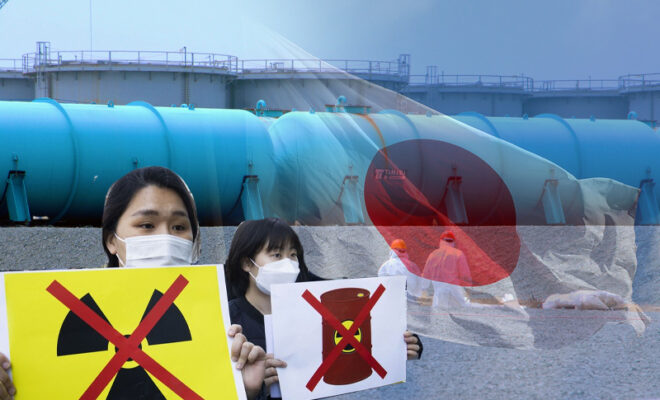What Is The Controversy About Japan’s WasteWater, Fukushima Nuclear Plant?

Japan’s plan to release wastewater from the Fukushima nuclear plant into the Pacific Ocean has sparked controversy and opposition from various countries & regions, including China and South Korea.
The International Atomic Energy Agency (IAEA) recently gave its approval to Japan’s proposal. The agency stated that the discharged water would have a negligible impact on people and the environment.
The Fukushima nuclear plant experienced an objectionable meltdown in 2011 after a powerful earthquake and tsunami. As a result, large quantities of radioactive water have flooded at the site.
The water comes from various sources, including cooling the damaged reactors, rainwater, and groundwater.
Currently, approximately 1.3 million cubic meters of water are stored in tanks, but they will reach their capacity by early 2024. Japan must discharge the treated wastewater to proceed with the decommissioning of the nuclear plant.
The polluted water has undergone distillation and filtration processes to remove radioactive elements, leaving primarily carbon-14 and tritium, a radioactive form of hydrogen, which is challenging to separate from water.
Tokyo Electric Power Company (TEPCO) will dilute the water until tritium levels fall within regulatory limits. The treated water will then be released through a pipeline, which will be exited into the Pacific Ocean.
The plan has been met with opposition from fishing communities and countries all around the world, including Peru and South Korea.
The countries have expressed their concerns regarding the possibility for pollution, as well as the impact the discharge will have on people’s livelihoods and the long-term hazards involved.
South Korea, which has maintained a ban on seafood and agricultural produce from Fukushima since the 2011 disaster, has seen its citizens stockpiling sea salt in anticipation of the wastewater discharge.
Experts have also shared their own views on the potential risks. While some argue that the impact on countries across the Pacific Ocean will likely be minimal, others emphasize the need to assess the long-term effects of radionuclide exposure on the environment and marine organisms.
The controversy of Japan’s wastewater release plan has attracted global attention. The neighboring countries are opposing this decision despite IAEA approval. They may fear the potential consequences.
Also Read:- What Are The Expectations With Today’s SCO Summit Under India’s Leadership?
Or this may also happen that their core motives are just to oppose Japan’s plans. As Japan has already confirmed that they will neutralize the wastewater thus there might be a minor level of environmental impact.



